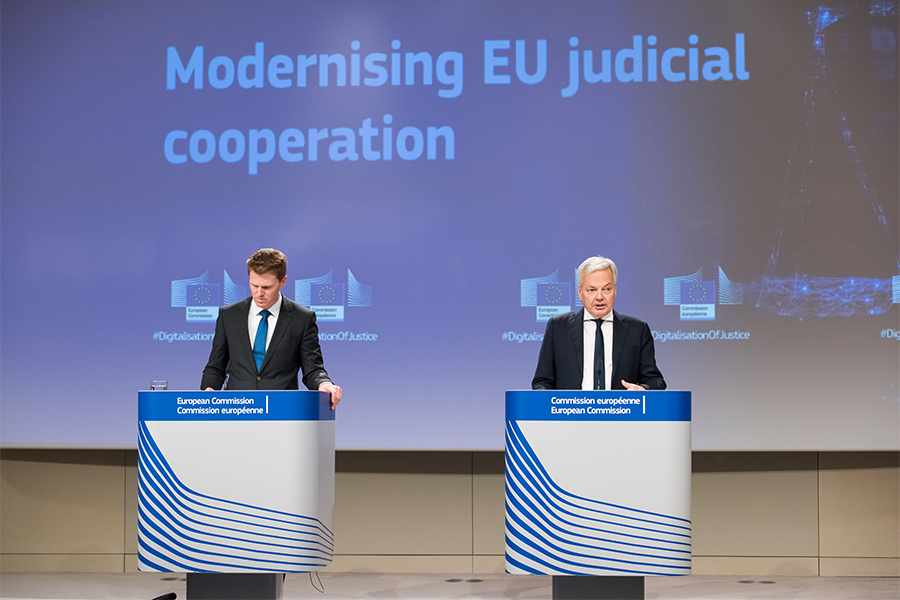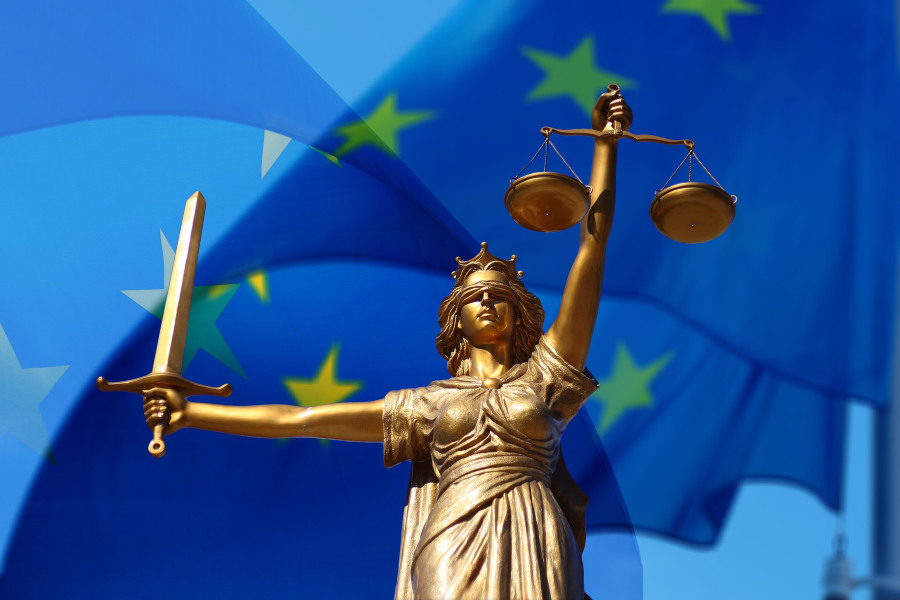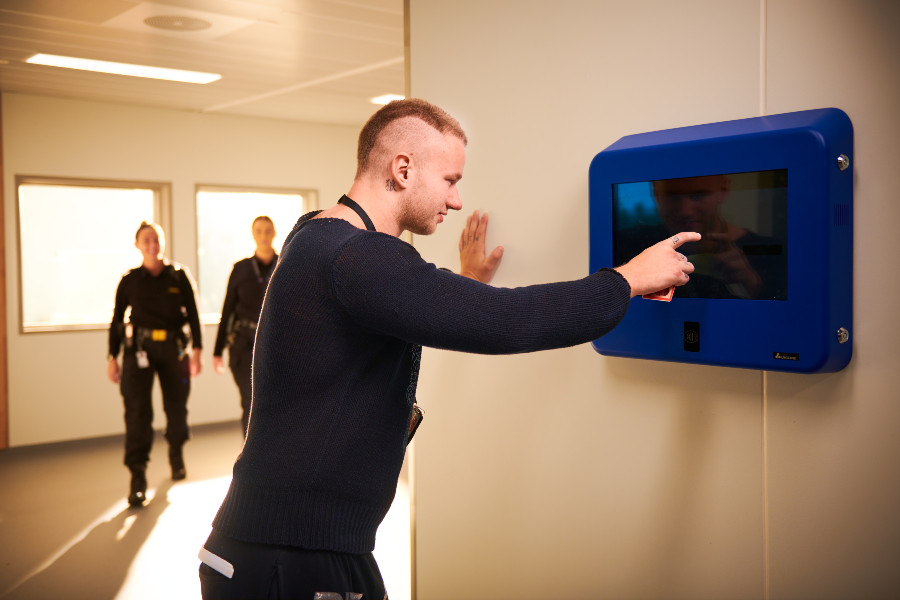Article
Didier Reynders
European Commissioner for Justice
When citizens think of justice, they might think of lawyers in wigs, law courts with neoclassical pillars, or lady justice. But in practice, this image of justice has changed over time, so have the tools we have to support it.
I am happy say justice in the European Union is advancing steadily and ambitiously towards digitalisation in line with the trends of our century.
Indeed, my priority is to speed up this work and make the justice sector is a forerunner in Europe’s Digital Decade.
I want to see barriers to access to justice removed, and citizens and businesses having confidence in the efficiency of justice systems.
When the COVID-19 pandemic started, many EU citizens experienced delays and sometimes full halt in their justice systems. It showed that there is still room for progress to make justice systems more resilient and efficient, also by making the most out of the digital transition.
In this context, on 1 December 2021, I presented three proposals to modernise our EU justice systems further.
The first one aims to make administration of justice easier and cheaper for citizens and businesses. With our new proposal, they will be able to use electronic means of communication to file claims and communicate with authorities from the comfort of their home or office. Exchanges between Member States will be possible through national portals, and at the same time the European Commission will provide an access point on the European e-Justice Portal.
We are looking at establishing a modern and integrated solution which tackles the existing practical barriers. Citizens will be able to pay court fees electronically. Moreover, given the lessons learned from the COVID-19 realities, our proposal ensures that oral hearings could also take place through videoconferencing.
Digital tools are not only useful to accelerate procedures and cut travel time. They are fundamental in ensuring our safety against criminal threats.
The 2016 Brussels bombings were a coordinated terrorist attack that severely hit Belgium. Many fellow European citizens also experienced the grief and fear that these attacks have caused and are still threatening our societies. We are introducing two proposals that will make the manner in which we approach terrorist threats and criminal investigations more resilient and fit for our digital age.
The second proposal on Digital information in cross-border terrorism cases significantly modernises the Eurojust’s information system. It was in fact the aftermath of the 2015 Bataclan concert hall attack in Paris that made authorities realise that they need better cross-border collaboration for cross-border terrorist investigations and prosecutions.
The result was the creation of Eurojust’s European Judicial Counter- Terrorism Register.
I am proud to say it has revolutionised work of law enforcement authorities across the EU, allowing prosecutors to identify potential links in investigations against terrorist suspects in different EU countries and coordinate the judicial response.
The coordinated involvement of judicial authorities is also crucial from the rule of law point of view, as coordinated preventive measures – such as house searches and arrest warrants – need to be authorised and supervised by judicial authorities.
We aim now to take the Register to the next level. We propose to modernise the system to identify many links automatically, hence requiring much less manual intervention.

This will allow Eurojust to give faster and better feedback to national authorities. We propose also to set-up secure digital communication channels between national authorities and Eurojust. Finally, the proposal will provide a clear legal basis for cooperation with prosecutors outside the EU.
The third proposal is to support the functioning of Joint Investigation Teams (JITs). These teams are set up for specific criminal investigations assembled by the authorities of two or more States, to carry out together criminal investigations.
The proposal establishes a Joint Investigation Teams collaboration platform. The platform will be a highly secure online collaboration tool aiming to facilitate the exchanges and cooperation within JITs throughout their duration.
It will provide for easy electronic communication, exchange of information and evidence, including large amounts of data, traceability of evidence as well as planning and coordination of JIT operations. The platform is confidential by design; therefore it corresponds to the highest levels of cybersecurity standards.
In previous discussions and meetings with justice professionals, it struck me how much investigative judicial authorities rely on each other to exchange information and evidence securely and swiftly.
I saw that having digital tools in place is crucial, especially when time is of the essence.
Citizens and businesses too are operating increasingly digitally, and they expect to have a digital and fast response to their issues.
As part of the Next Generation EU, the digitalisation of justice systems became a horizontal objective for all the Member States.
I am proud that we are delivering on our promises for a modern and digital justice system. Member States will also need to implement all these tools and IT infrastructures. Together, we are creating a truly efficient and resilient European area of freedom, security and justice.
For more information, visit this European Commission’s policies information page.



Didier Reynders
Didier Reynders became European Commissioner for Justice, responsible for the rule of law and consumer protection, in December 2019. Reynders, a Belgian national, has held several high-level political positions in his country, including Deputy Prime Minister (2014-2019), Minister of Foreign and European Affairs (2014-2019) – a portfolio that he accumulated with that of Minister of Defence between 2018 and 2019 –, Minister of Foreign Affairs, Foreign Trade and European Affairs (2011-2014) and Minister of Finance (1999-2011). Moreover, from 2004 to 2011, he chaired the Mouvement Réformateur (liberal party alliance). He was elected a Member of Parliament in 1992. Before that, he chaired the Belgian Railway Company and the National Society of Airways. He holds a law degree from the University of Liège (1981).


